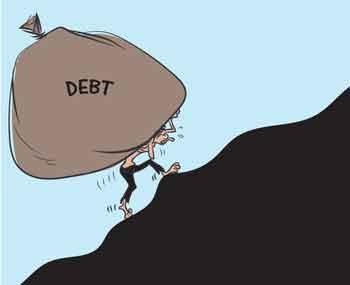13 Feb 2024 - {{hitsCtrl.values.hits}}
 President Ranil Wickremesinghe presented his latest policy statement while opening the new Parliament session on February 7. Contrary to his previous policy statements and special statements on the economy it did not contain so many plans that his government is going to implement, yet it has much food for thought.
President Ranil Wickremesinghe presented his latest policy statement while opening the new Parliament session on February 7. Contrary to his previous policy statements and special statements on the economy it did not contain so many plans that his government is going to implement, yet it has much food for thought.
Wickremesinghe at the outset painted a rosy picture on the situation. He said that the inflation, which stood at a daunting 50.6 per cent last year, has dramatically decreased to a mere 6.4 per cent, today. Food inflation, previously at an alarming 54.4 per cent, has seen a remarkable decline to just 3.3 per cent. The exchange rate has shown positive movement, with a dollar worth Rs. 362 in the past and now valued at Rs. 314. The current situation is vastly improved, with foreign exchange reserves standing at $ 4.4 billion by the end of
December 2023.
Recalling a darkest period in Sri Lankan history he said that there are no power cuts, no shortage of fuel or cooking gas and the limits imposed on the fuel supply through a QR code system has been lifted. The agriculture sector faces no shortage of fertilizer and there is no shortage of fuel for the fishing community either. Import restrictions on all goods except for vehicles have been lifted, enabling the continued importation of essential food and medicine. There are no shortages of raw materials crucial to manufacturing industries.
He boasted that achieving such remarkable feats in a brief span of time is a world record. Hence, one would doubt whether the President was making this statement keeping in mind the forthcoming Presidential election at which he is said to be planning to contest. He seemed to be attempting to portray a situation where the country has attained total recovery from the unprecedented economic crisis that has engulfed the country
since 2022.
Nevertheless, the facts that he thus presented were not far from the truth. This is an undeniable and commendable situation. Yet, we should not allow people to be overconfident as these are not achievements that we gained through economic development. It was a direct upshot of the IMF sponsored programme initiated by former President Gotabaya Rajapaksa as if to offset the tremendous damage he did to the economy. The programme is only transitional to a long-term economic development plan which the country is yet to formulate. Therefore, time is yet to come to celebrate the achievements.
The government in fact was able to see the current relatively relaxed economic situation by obtaining loans from the IMF and other international funding agencies, and not repaying the loans obtained before. For instance, the IMF has so far since March last year granted two instalments of $ 330 million each from its commitment of $ 2.9 billion under its Extended Fund Facility (EFF) for Sri Lanka. The International Finance Corporation (IFC), the World Bank’s investment arm, provided a $ 400 million cross-currency swap facility to help fund essential imports last year. The President also said during his speech: “All these endeavours are undertaken amid a substantial debt burden.”
The success of the economic recovery and lasting development lies in the ability of the country to address the debt issue. Even after painting a rosy picture, the President too was not able to avoid this reality. He said “However, contentment with this progress alone is not sufficient. We are not currently repaying any loans from foreign countries and external
commercial creditors.”
“By September 2023 our total debt burden was US $ 91 billion. It will take a considerable period of time to settle this debt. In order to meet our debt, we need to source the funds locally. It is imperative that we generate this income; otherwise, we risk falling into the debt trap once again. As a result of debt restructuring, we will be able to reduce the annual payment. Nevertheless, even under such a situation we will still have to pay around US $ 3 billion per year.”
Yes, “we need to source the funds locally” to address the debt issue including repayments and minimizing new loans. Yet, do we have a long-term plan and strategies for it?
25 Nov 2024 7 minute ago
25 Nov 2024 10 minute ago
25 Nov 2024 2 hours ago
25 Nov 2024 3 hours ago
25 Nov 2024 3 hours ago